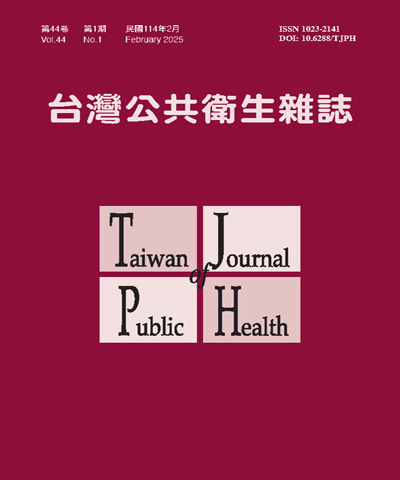
台灣公共衛生雜誌/Taiwan Journal of Public Health
臺灣公共衛生學會,正常發行
選擇卷期
- 期刊
Objectives: The purposes of this study were to understand the work stress, emotional intelligence, and emotional exhaustion status of Taiwanese dietitians, and to determine the predictors of emotional exhaustion. Methods: A total of 320 practising dietitians voluntarily participated in the online questionnaire survey. The self-administered, structured survey consisted of the Occupational Stress Indicator-2, the Emotional Intelligence Scale, the Maslach Burnout Inventory - Chinese, and questions seeking general information. Descriptive statistics, one-way ANOVA, and hierarchical regression were performed for the analyses. Results: This study found that workload was the main source of work stress among dietitians and they were at moderate levels of burnout. The 5 subscales of emotional intelligence were all higher than the middle point of the measurement scale. Those who worked in hospitals had significantly higher levels of work stress and emotional exhaustion. The final model explained 46.2% of the variance in emotional exhaustion. Work place, work stress, and emotional intelligence were significant predictors of emotional exhaustion. Conclusions: Emotional exhaustion is a noteworthy issue among Taiwanese dietitians, especially for those working in hospitals. The study’s findings suggest a significant association between emotional intelligence and emotional exhaustion; thus, enhancement of emotional intelligence may need to be at the core of future interventions.

